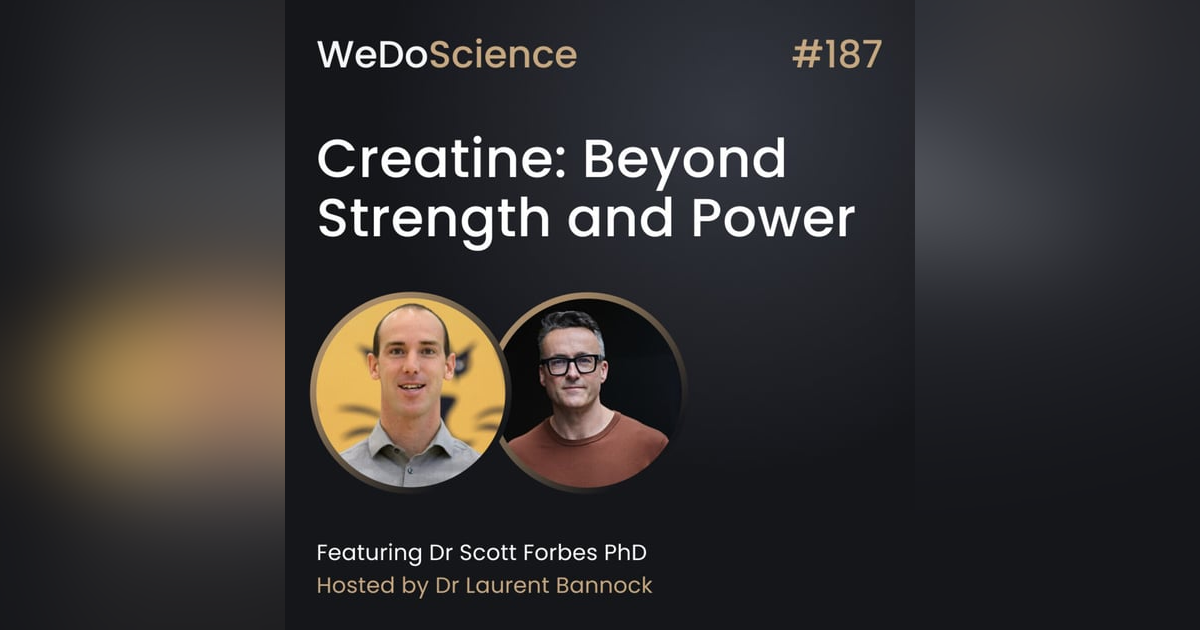April 13, 2023
"Creatine: Beyond Strength and Power" with Dr Scott Forbes

Episode 187 of the Institute of Performance Nutrition's "We Do Science" podcast! In this episode, I (Laurent Bannock) discuss "Creatine: Beyond Strength and Power" with Dr Scott Forbes PhD (Brandon University, Canada)
Discussion Topics Include:
- Summary of dietary sources and mechanisms of action of Creatine Monohydrate and its potential impact on adaptions to resistance training, strength, power and muscle hypertrophy
- Emerging research for novel applications of Creatine on health, cognitive functions, immunity, glycogen storage, and in particular endurance training and performance
Key Paper(s) / Book(s) Referred to:
- Creatine Supplementation and Endurance Performance (paper currently in final review stage)
Related Podcast Episodes:
Check out our other podcasts, publications, events, and professional education programs for current and aspiring sports nutritionists at www.TheIOPN.com and follow our social media outputs via @TheIOPN







